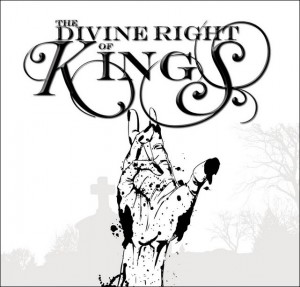After illustrating the pure joys of having wisdom, i.e., faith and reverence for God, Solomon goes on in chapter 8 to explain how this true wisdom works as we live our lives under the sun. The first  way deals with properly relating to civil government. Ecclesiastes 8:2-4 says, “Keep the king’s command, because of God’s oath to him. Be not hasty to go from his presence. Do not take your stand in an evil cause, for he does whatever he pleases. For the word of the king is supreme, and who may say to him, ‘What are you doing?’”
way deals with properly relating to civil government. Ecclesiastes 8:2-4 says, “Keep the king’s command, because of God’s oath to him. Be not hasty to go from his presence. Do not take your stand in an evil cause, for he does whatever he pleases. For the word of the king is supreme, and who may say to him, ‘What are you doing?’”
This concept is often referred to as the “divine Right of Kings.” The first duty of a responsible citizen is to obey the laws of the land. Although Solomon specifically refers to a monarchy, the principle is relevant in every civilization and in every governmental authority. Jesus told his disciples to “render to Caesar the things that are Caesar’s” (Luke 20:25). Paul told every person to “be subject to the governing authorities.” There are many differing kinds of governing authorities that we all live under; parents, bosses, teachers, policemen, mayors, elders, governors and presidents. Every successful organization has an established leadership through which it accomplishes its purpose. To be good family members, students, employees, church members, and citizens we must learn to submit ourselves to other’s authority.
Solomon argues that the king’s authority comes from God. Paul echoes this truth in Romans 13:1. He writes, “Let every person be subject to the governing authorities. For there is no authority except from God, and those that exist have been instituted by God.” This is exceptionally interesting because Paul’s letter was addressed to the Romans who were directly under the authority of Nero Caesar one of the most corrupt officials in history. Paul was beheaded under Nero’s rule because he wouldn’t stop preaching the gospel. The scriptures teach us that we are to obey every governing authority unless it commands us to sin. Like Peter, Paul was determined to obey God even when man’s law forbids it. No other reason is acceptable to God. Even if the government permits others to sin, we must continue to submit ourselves to its authority. Even if we disagree with it we must obey. Even if we don’t respect the ruler we must obey. Even if we don’t like the leader we must obey. In the light of the exalted position of divinely appointed authority, Briscoe says, “the Christian should ‘be subject’ to such authority, and the extent to which his submission is shown will be some indication of the extent to which his mind has been renewed, for only the mind enlightened by the Spirit of God would see secular powers in such a light.”